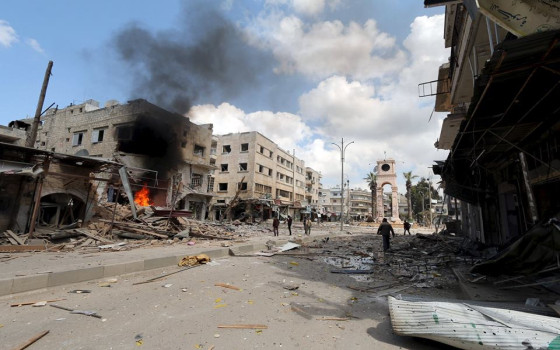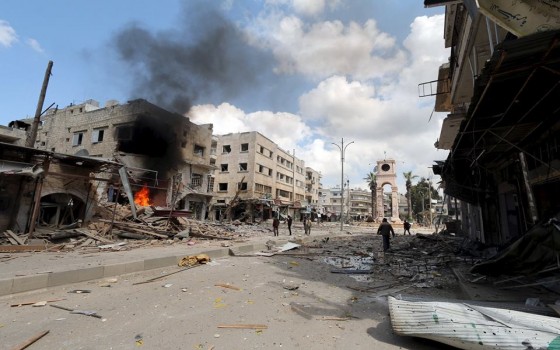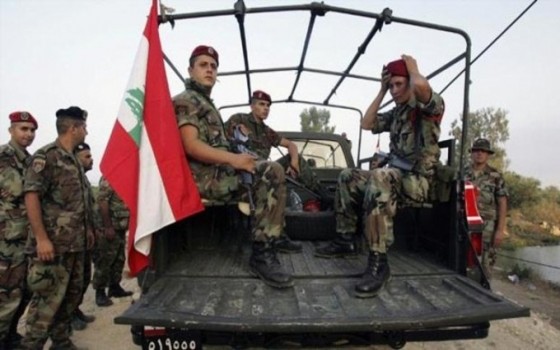
The situation in Syria: The UN Commission of Inquiry confirms the continuation of war crimes patterns as the conflict intensifies and a worrying humanitarian crisis in light of the economic collapse

- Europe and Arabs
- Wednesday , 11 September 2024 9:38 AM GMT
Damascus - New York: Europe and the Arabs
The United Nations Commission of Inquiry on Syria warned of the escalation of fighting on many of the country's front lines amid continuing patterns of war crimes and the worsening humanitarian crisis that could spiral out of control, while the specter of a large-scale war looms in the region. According to the UN daily news bulletin, a copy of which we received on Wednesday morning,
The head of the commission, Paulo Pinheiro, said that the direct clashes between the Kurdish-led Syrian Democratic Forces on the one hand, and the Arab tribes, regime forces and Iranian-backed militias on the other hand, "remind us of the deep sense of injustice that grips the inhabitants of this part of northeastern Syria."
The commission stated in its latest report issued yesterday, Tuesday, that Israeli airstrikes across Syria during the Gaza war caused civilian casualties at least three times, while groups affiliated with Iran in turn targeted American bases in eastern Syria more than a hundred times, followed by counterattacks from the American side. The commission said that six foreign armies remained active in Syria during the reporting period, from January 1 to June 30. The commission found that at least 150 civilians, half of them women and children, were killed in northwest Syria, including through the use of cluster munitions in densely populated urban centres in the Idlib region. It said most of these deaths were the result of indiscriminate attacks by Syrian government forces, which it said may amount to war crimes.
The commission added that Turkish forces had carried out numerous operations against SDF military targets, and stressed the illegality of Turkish airstrikes that last winter hit several medical facilities and destroyed a power plant in al-Suwaydiyah, Hasakah, affecting the access of more than a million people to water, fuel and other basic services.
A brutal massacre
In southern Syria, the commission launched an investigation into a massacre that took place on 7 April in Daraa, where ten civilians, including two children, were “brutally executed by pro-government militias largely composed of reconciled former rebels who chanted ISIS slogans.” The commission said the majority of victims were executed “using knives or shot at close range in acts that may amount to the war crimes of murder and outrages upon personal dignity.”
“The events in Daraa bore the hallmarks of some of the most horrific atrocities committed during more than a decade of the Syrian conflict, while government forces stationed just metres away from the massacre failed to intervene and protect civilians, demonstrating the extent to which Syria has descended into chaos,” said commission member Hani Majali.
Harsh detention facilities
The commission documented cases of deaths in detention by the Syrian state, while it said there were “reasonable grounds to believe” that the Syrian government continued to commit acts of torture, including sexual violence and ill-treatment against people in detention. It also documented cases of torture and execution of detainees in northwestern Syria by Hay’at Tahrir al-Sham.
It added that harsh detention practices continued throughout Syria, “reaffirming the persistence of patterns of war crimes by all actors carrying out detention, as well as patterns of crimes against humanity in detention by the Syrian state.”
Alarming humanitarian crisis
The commission also warned that a humanitarian crisis in the country “threatens to spiral out of control” amid a severe funding shortfall and a rise in the number of people suffering from severe food insecurity, which has reached 13 million Syrians, while more than 650,000 children “show signs of stunted growth due to severe malnutrition”.
Amid economic collapse, reduced support and “predatory” practices by local authorities, demonstrations have recently erupted in areas controlled by the government and the opposition.
Hany Megally, a member of the UN Commission of Inquiry on Syria, stressed the need to listen to the voices of “the brave Syrians who took to the streets to demand their rights” and not to suppress them. He said that Syria continues to suffer from severe insecurity, and “no Syrian refugee should be forced to return under the current circumstances”.
It is worth noting that the Independent International Commission of Inquiry on the Syrian Arab Republic was established in August 2011 to investigate all alleged violations of human rights law committed since the outbreak of the conflict in the country earlier that year.












No Comments Found